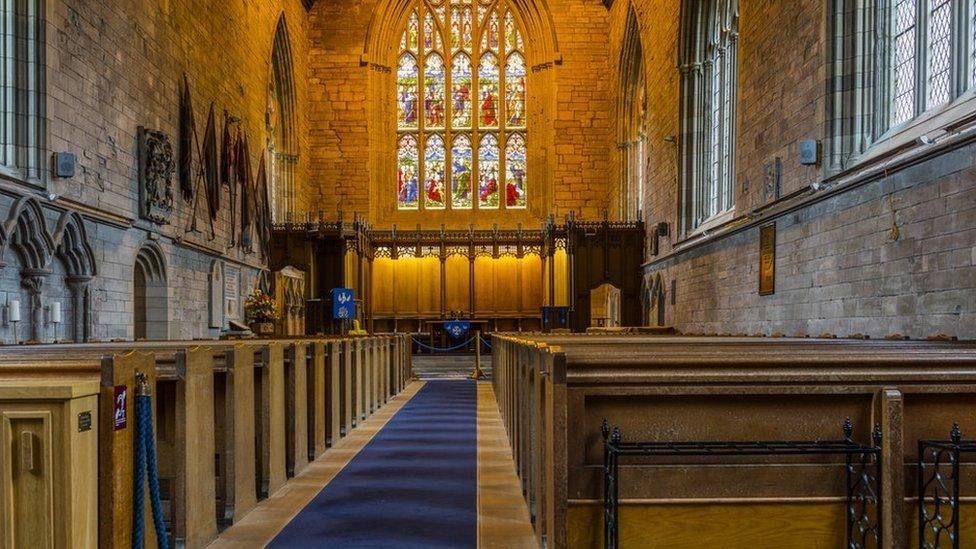Community wants to buy historic church to keep 'sanctuary' alive
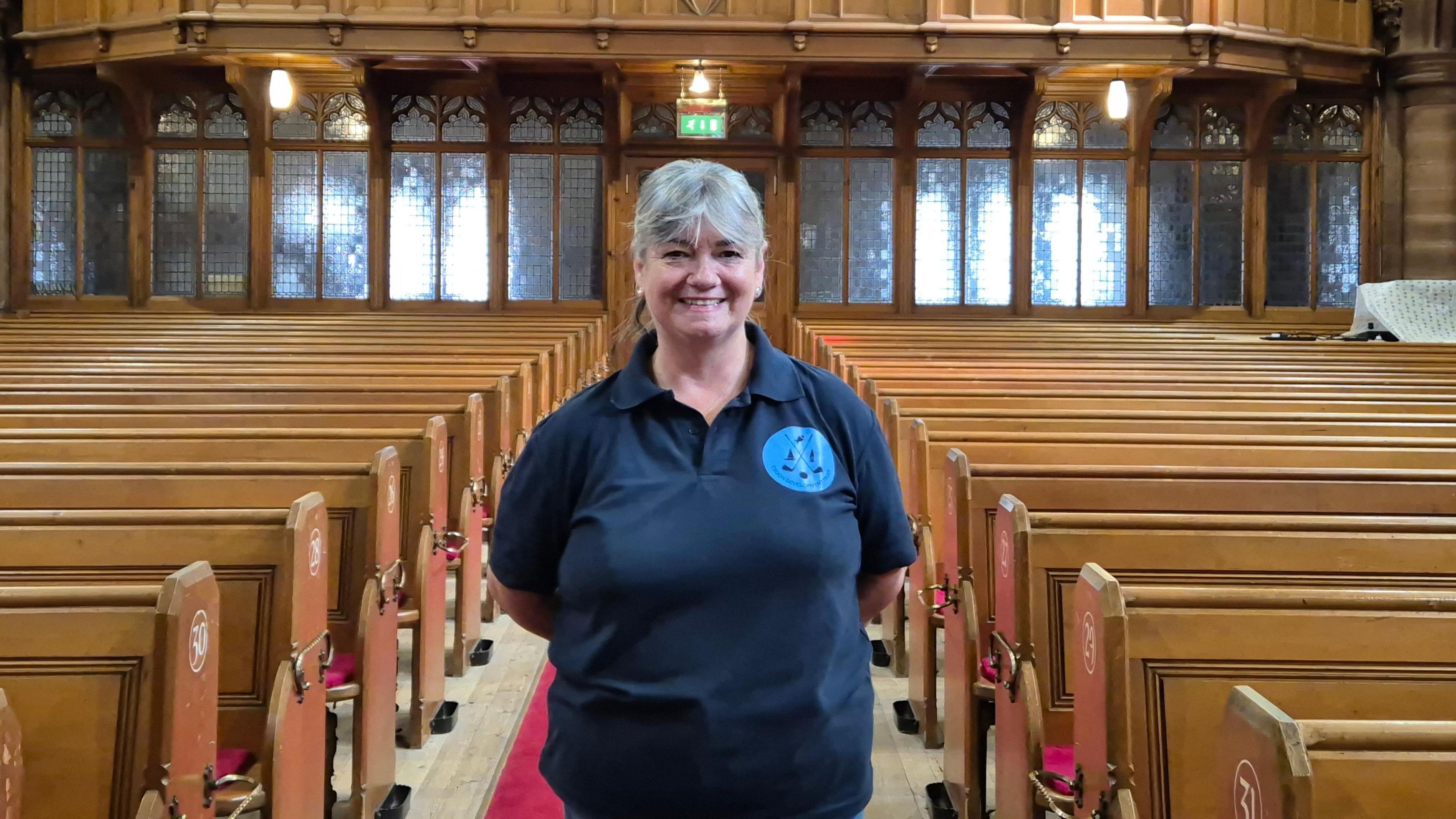
Maureen Leonard is spearheading efforts to take over Troon Old Parish Church
- Published
An Ayrshire community is facing a race against time to stop a historic church in their area falling into disuse.
Locals in Troon want to purchase Troon Old Parish Church from the Church of Scotland - but the B-listed building has a £200,000 price tag attached to it.
The community group were only granted exclusive rights to buy it from May until September, and members have told BBC Scotland News they are concerned that a building that has hosted baptisms, weddings and celebrations for more than 100 years will become an eyesore.
The purchase plan comes as the Church has been accused of not offering enough support to local communities wanting to take over properties it is selling.
Maureen Leonard and Rachel Tribble are both members of the Troon Development Trust, a local group dedicated to boosting the seaside town.
They meet the BBC on a warm, sunny day, with the beachfront filled with families enjoying the last of the school summer holidays.
The church is only yards from the hubbub of noise, located in the heart of the town - and Rachel believes it has been equally central to people's lives.
"When we had an event about a month ago, more than one person said they were baptised there, they were married there and that this was their church," she said.
"It's part of the thread that weaves through people's lives. If it started to deteriorate or be boarded up that would be sad to see."
Both Maureen and Rachel feel creating a community space would not only keep the building in use, but also keep alive memories for many of the town's residents.
"I think a lot of people are worried we're going to tear up the sanctuary, " says Rachel.
"We want to keep it almost as is – the architecture, the stained glass windows and the history."
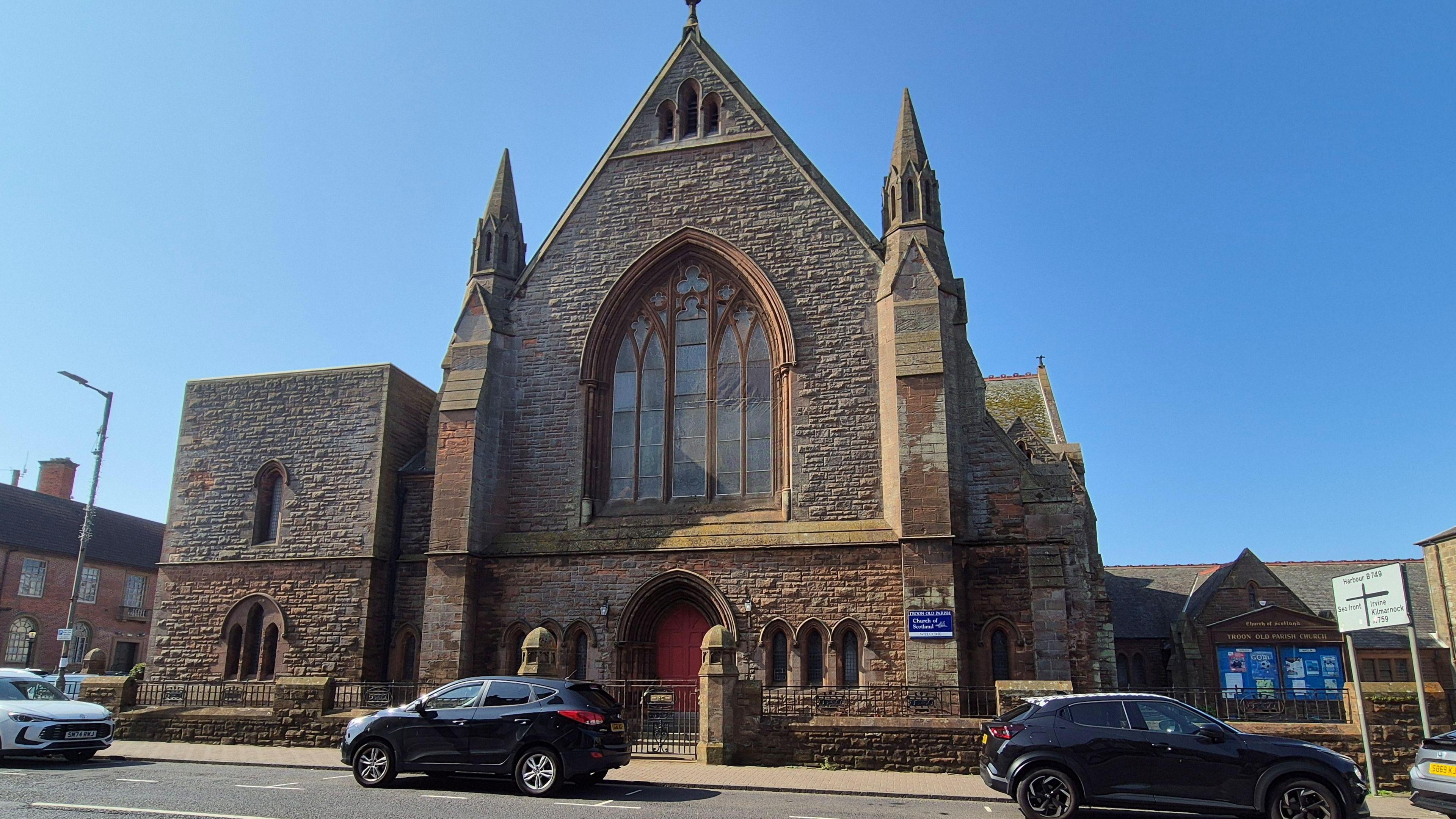
The church was first built in 1895 by the architect Hippolyte Blanc
The development trust has ambitious plans, external for the site, from hosting martial arts classes to art workshops. An evening café and local heritage centre are also planned.
However, the financial costs are daunting.
In 2019 the Church of Scotland's three parishes in Troon announced plans to merge into one, a move that would see one of their properties no longer needed.
Troon Old Parish, which dates back to 1894, was selected for closure, and the development trust expressed interest in taking it over.
Although granted exclusive rights to secure a transfer of the building, the trust were only given about four months to stump up £200,000, with a deadline of 30 September.
A number of churches across the country are facing closure as the Church of Scotland looks to reduce its property portfolio.
Maureen believes if the property reaches the open market it is unlikely developers would move on it, given costs associated with repairs and re-development - costs the community trust could cover via various heritage funding and charitable grants.
"What you're talking about is a building in the centre of the town, that could go to rack and ruin," she says.
"What we don't want is a repeat of the Station Hotel in Ayr, which could very well happen."
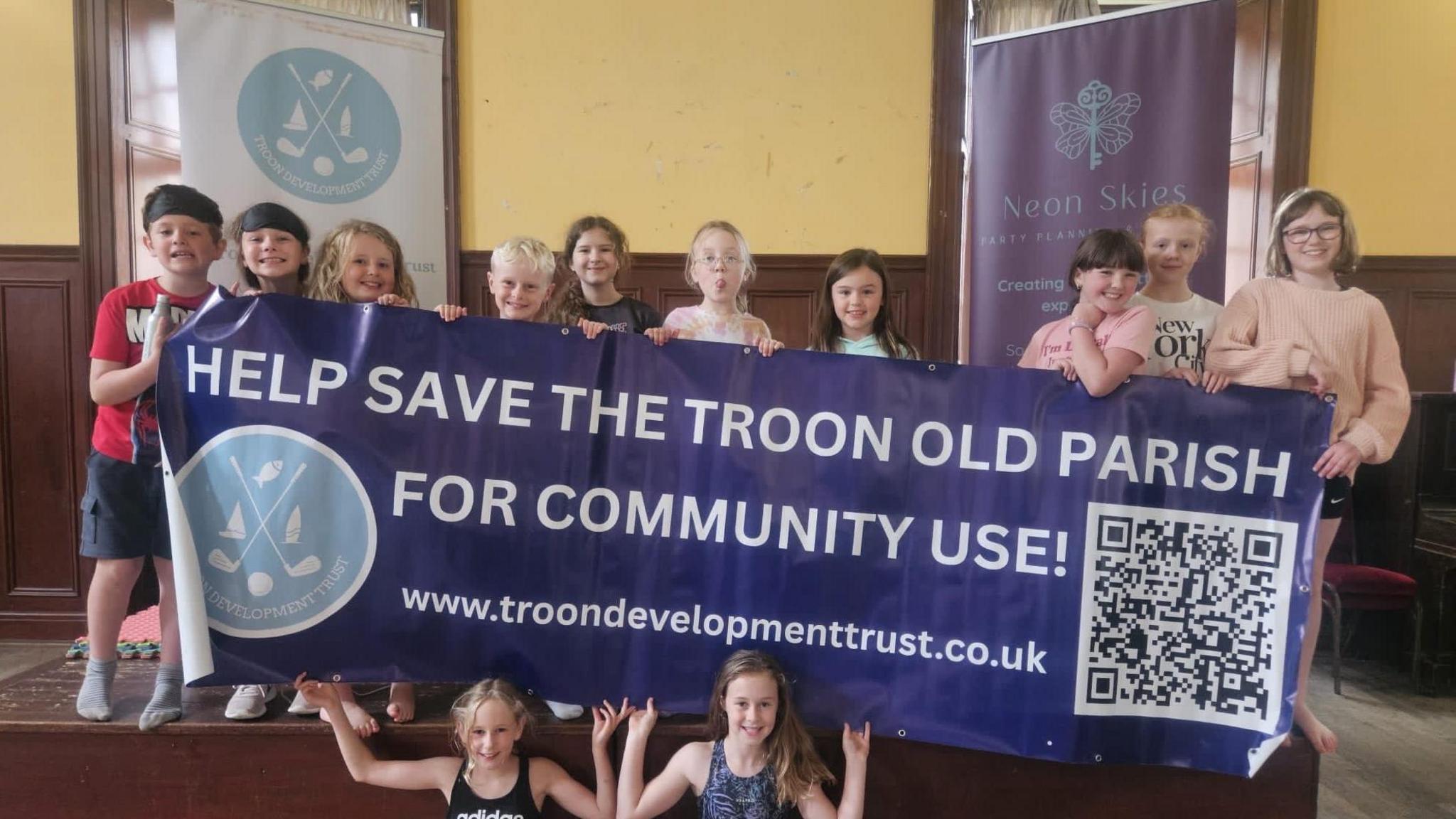
Organisers of the trust have held various community events to back the plan
"We're in an almost catch 22 situation," Rachel says.
"If we had the lease there would be so much more we can do with getting funding to repair the building. But we cannot find a funder to buy the building itself, and £200,000 cannot be funded simply through donations and events."
Rachel moved to Troon with her husband just under 15 years ago.
Initially they used it as a commuter town, but the rise of home working led her to become more involved in the local area, and from there, involvement in the struggle to keep the church within community hands.
"If this was last year, we would have applied to the Scottish Land Fund, external for up to 80% of the purchase price," she says.
"However because there are Scottish elections next year the deadline is earlier than usual for the coming year. By the time we learned we had exclusivity, we had passed the date for entering it."
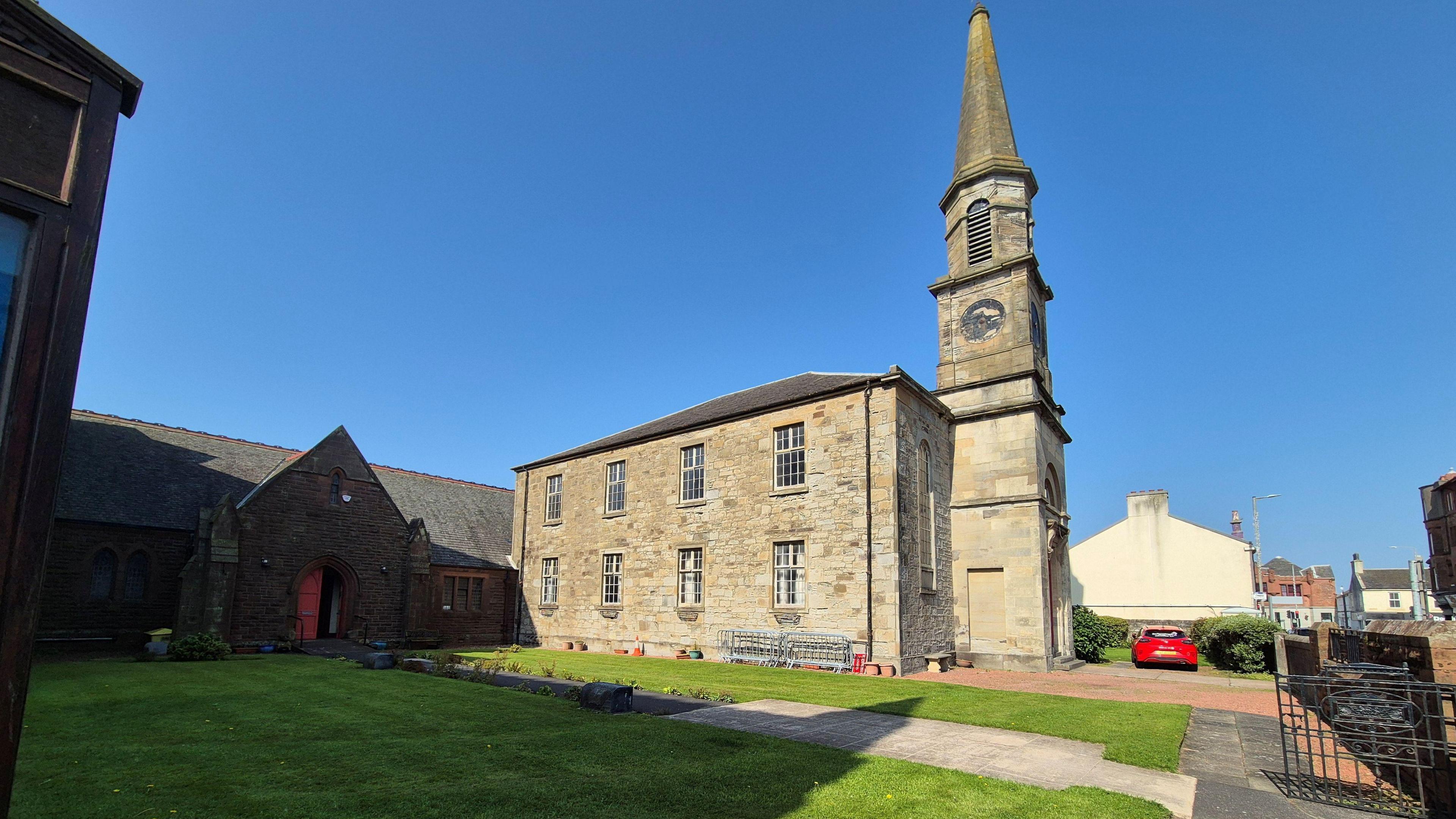
Part of the building includes a hall built from the original church, dating to 1838
Both Maureen and Rachel say dealings with the church have been amicable, and hope an extension for their funding bid will be approved.
Not all communities have been as content.
A community trust in Arisaig in the Highlands failed to buy a church with an asking price of £135,000, after being denied extra time to raise money. It then went to the highest bidder.
The Braemar Kirk in Aberdeenshire was bought by the owners of a boutique hotel, despite the local kirk session favouring another bid that would have retained the building for worship.
Linsay Chalmers, a development manager at Community Land Scotland, external, said the group understands the church's need to maximise income.
However she added: "These buildings are significant community assets, maintained for many generations by these communities.
"We are concerned that the Church of Scotland is looking at short-term financial returns and not considering the damage it may do to its own legacy or the impact upon the culture and heritage of the many communities around Scotland who have a close relationship to their kirks and other church buildings."
'Significant strain' on congregations
A spokesperson for the Church of Scotland said it had a "strong track record of engaging with community groups" but the general trustees were under a legal obligation to secure the best value.
They added that the congregation had to bear the costs of maintaining a building while it was not in use.
"Delays to the sales process place a significant financial and human resource strain on local congregations until they are sold, therefore sometimes it is not possible to extend periods of exclusivity," the spokesperson said.
They added that the general trustees of the kirk were having positive discussions with the development trust and that "we hope that the trust is successful in meeting its fundraising target in the near future and a positive outcome for both parties is secured."
Related topics
- Published30 July
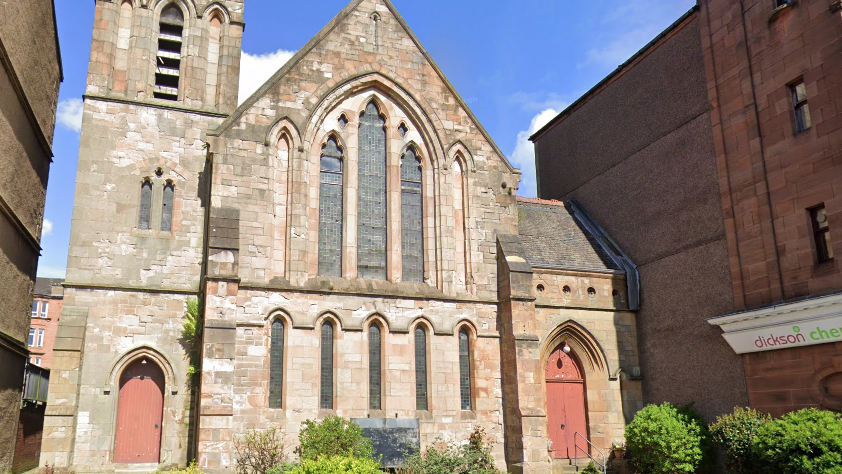
- Published17 July
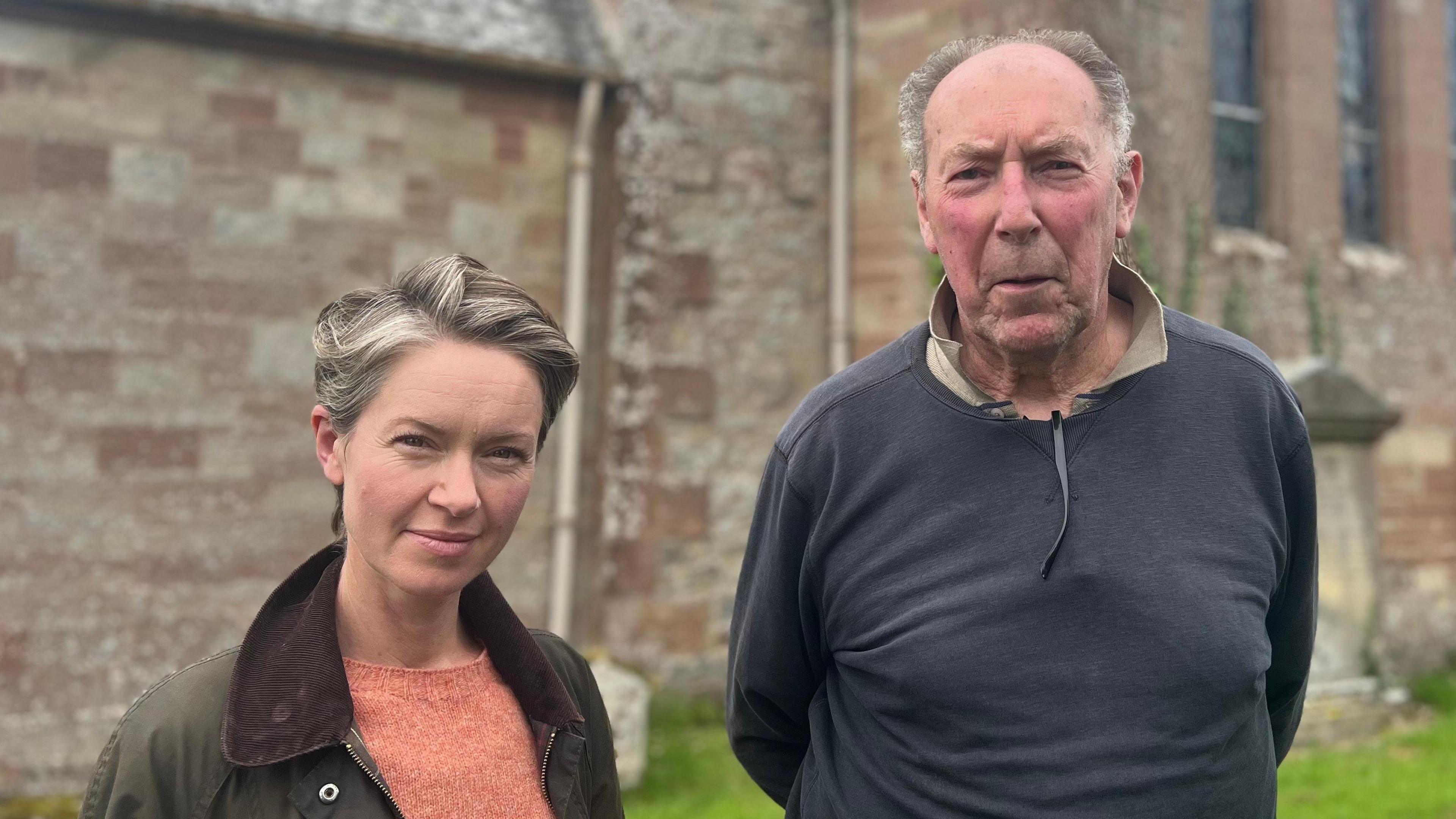
- Published20 May 2023
